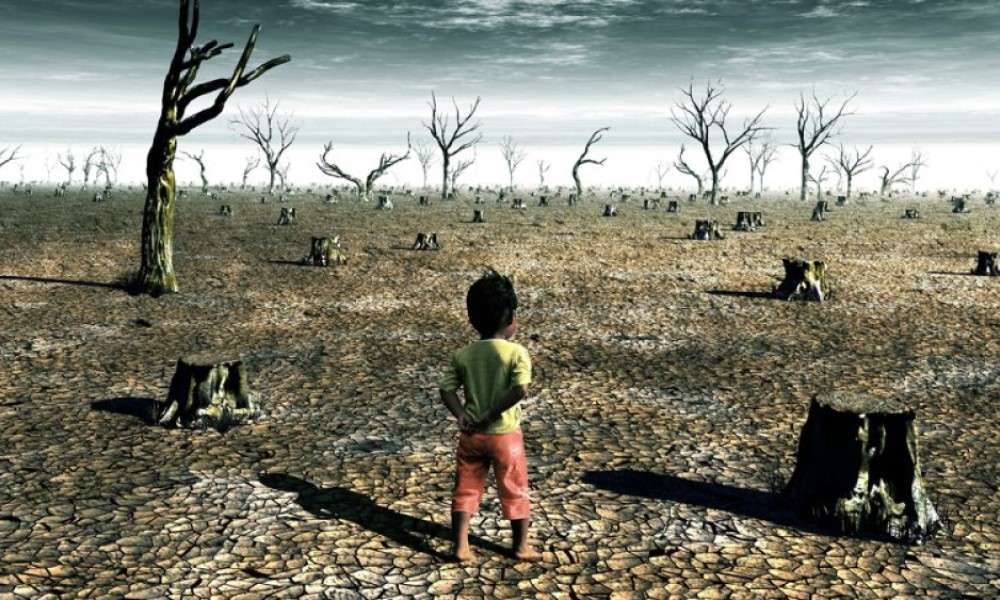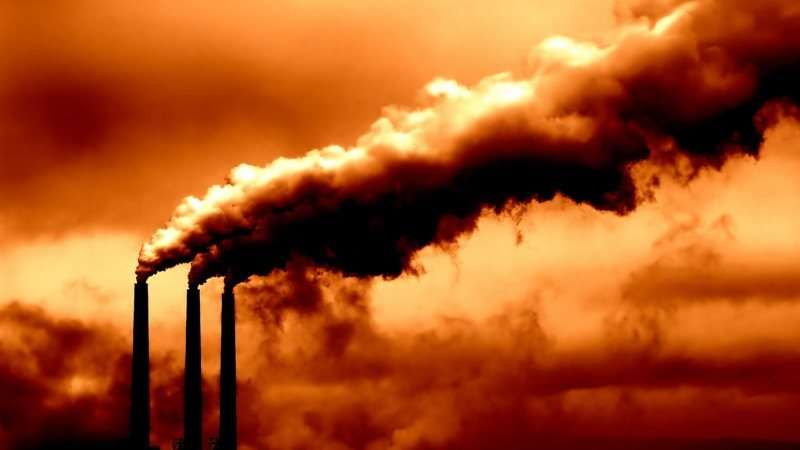Will Our Children Hate Us?
Will we gift our children a world of food shortage, disease, super-storms and flooded cities? The decisions that humanity makes in the next few years will either make or break our children’s futures.

What kind of world will our children have to deal with in the future? On the heels of the recent release of the World Bank’s climate change report – Turn Down the Heat, we list a few of the major concerns that will face our children in the future.
Extreme Heat

Unless human beings cut down on greenhouse gas emissions, the world is likely to be warmer by more than 4°C in 100 years. This will not be the end. Further warming of over 6°C will follow in the centuries to come.
The frequency and intensity of heat waves across the globe has increased. In 2010, a heat wave hit Russia, killing 55,000, destroying 25% of the crops, burning a million hectares, and costing Russia 15 billion dollars. In a 4°C warmer world, such temperatures would be normal, and heat waves never before experienced in the 20th century would occur regularly. The coolest months in such a climate would be substantially warmer than the warmest months were at the end of the 20th century.
Extreme Weather

In a warmer world, dry areas will become drier and wet areas wetter. The drought in the United States in 2012 impacted about 80% of agricultural land. By 2100, half of all farm land in the world is expected to be drought-hit.

An average of 500 weather-related disasters now take place each year, compared with 120 in the 1980s. The number of floods has increased six-fold. Rainfall levels in wet areas could increase a further 20 to 30% in a 4°C warmer world.
Subscribe
Food Shortages

In the next decade alone, a 100 million women and children are expected to join the already existing 500 million of them who are undernourished. By 2050, fisheries and livestock will collapse, and agriculture will suffer under prolonged droughts and heat waves, resulting in less food per person.

Resources will get scarcer. Elizabeth Hadly from Stanford University says “we may already be past these tipping points in particular regions of the world. I just returned from a trip to the high Himalayas in Nepal, where I witnessed families fighting each other with machetes for wood – wood that they would burn to cook their food in one evening.”
Rising Sea levels

A billion people, mostly in Asia, live in coastal regions. In a 4°C warmer world, sea-levels are likely to rise by 0.5 meters and possibly by almost a meter by 2100. These predictions do not include the melting of much of Greenland’s and Antarctica’s ice. They could contribute a total of 64 meters over the centuries.
An average of a 100 million people a year will experience floods due to coastal storms, which will have increased in frequency and intensity. During extremely powerful weather events, this number will rise significantly.
We Still Have Hope

Studies show that global warming is unavoidable. The last century of human activity has made a rise in global temperatures virtually inevitable. The question is no longer whether temperatures will rise, the question is how much will they rise. Hearteningly, numerous studies show that there are technically and economically feasible solutions that will probably hold warming below 2°C, and well below the 4°C mark. Will we make it happen?
Will our children hate us for what we did not do, or will our children thank us for what we did?
As individuals, the easiest way we can reduce our carbon footprint is by planting trees. Isha’s Project GreenHands, recipient of India’s highest environmental award, plants trees on your behalf and lets you track their exact location. All you need to do is donate just $2 or Rs.100 per sapling. Visit www.giveisha.org/pgh
If you would like to explore this topic further,  please check out our latest e-booklet, “A Tree Can Save The World”, in which Sadhguru looks at the role of individuals, businesses, and governments in combating climate change. It is available for free on amazon till 10 Dec 2012. Please note that Amazon ebooks can be read directly on your web browser, PCs, tablets and smartphones. Click here for details.
please check out our latest e-booklet, “A Tree Can Save The World”, in which Sadhguru looks at the role of individuals, businesses, and governments in combating climate change. It is available for free on amazon till 10 Dec 2012. Please note that Amazon ebooks can be read directly on your web browser, PCs, tablets and smartphones. Click here for details.


